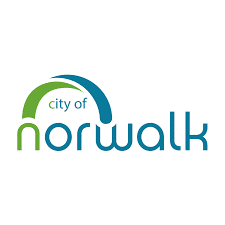Provider groups at odds with regulators over arbitration rules for No Surprises Act
Iowa has among lowest rates of surprise billing in the nation

JOE GARDYASZ Jan 13, 2022 | 9:30 pm
6 min read time
1,400 wordsAll Latest News, Health and Wellness, InsuranceAlthough a new federal law means that Iowa patients should no longer receive surprise medical bills after an emergency room visit or hospital stay, health care provider groups and insurers are still wrangling at the national level over details of the dispute resolution rules that have been devised by regulators.
Surprise billing, also known as balance billing, occurs when a person seeks care at an in-network facility or provider, but unknowingly receives services that are out-of-network. Nationally, about 1 in 5 emergency room visits and up to 1 in 6 in-network hospitalizations include at least one surprise out-of-network bill, according to a 2020 Kaiser Family Foundation study.
Under the No Surprises Act, which went into effect on Jan. 1, medical bills for out-of-network charges that were not the choice of the patient will now be settled through arbitration between the payer and the provider, taking the patient out of these types of billing disputes. Federal agencies estimate that about 10 million surprise medical bills are received by consumers annually.
Before the new process can begin, however, insurers and providers will need to resolve their own conflict over how disputed bills will be handled.
A lawsuit filed by the American Hospital Association, the American Medical Association and other providers in early December alleges that the final rule developed by regulators favors insurers in the arbitration process, and is seeking an injunction on that process. The defendants in the case include the federal agencies that wrote the rules — the U.S. Department of Health and Human Services, the Department of the Treasury, the Department of Labor, and the Office of Personnel Management.
The dispute centers on the language in the interim final rule, which states that the independent dispute resolution (IDR) entity “must begin with the presumption that the QPA [qualifying payment amount] is the appropriate out-of-network rate” and that the IDR “must select the offer closest to the QPA unless it determines that credible information submitted by either party clearly demonstrates that that billed amount is materially different from the appropriate out-of-network rate.”
According to a summary of the rule, the qualifying payment amount is “generally the plan or issuer’s median contracted rate for the same or similar service in the specific geographic area.”
“The lawsuit really is dealing with how the arbitration and dispute resolution is going to play out, and so it’s a very narrow challenge of this law,” said Chris Mitchell, president and CEO of the Iowa Hospital Association, which is the state affiliate of the AHA. “We strongly believe that the intent of Congress isn’t necessarily being followed to the letter of the law by the regulators, and that’s where the dispute is. It has nothing to do with any of the provisions that will benefit consumers, from the Iowa Hospital Association perspective.”
Mitchell said the lawsuit will not delay the primary intent of the legislation, which is taking consumers out of the dispute process.
The new law applies to nearly all private health plans offered by employers and to individual policies bought on or off the Affordable Care Act exchanges. Medicare and Medicaid already prohibit billing patients for the balance of the charges. It covers most emergency services provided in hospitals, free-standing emergency departments and urgent care centers licensed to provide emergency care.
It also applies to air ambulance services, but not ground ambulances. Additionally, the legislation applies to bills for scheduled treatment from doctors and hospitals that are not in the patients’ insurance networks and that they did not choose. Consumers would be responsible only for their usual in-network cost-sharing in these situations.
Providers and plans also must notify consumers of their surprise medical bill protections. Providers and facilities must post a one-page disclosure notice summarizing NSA surprise billing protections on a public website and give this disclosure to each patient for whom they provide NSA-covered services.
As reported by NPR in November, physician groups argue that the arbitration rule as written gives insurers the upper hand and will let them drive payment rates down and potentially force doctors out of networks or even out of business, reducing access to health care.
Department of Health and Human Services Director Xavier Becerra told NPR that his department has heard those concerns but said the bottom line is protecting patients. Medical providers who have taken advantage of a complicated system to charge exorbitant rates will have to bear their share of the cost, he says, or close if they can’t. “I don’t think when someone is overcharging that it’s going to hurt the overcharger to now have to [accept] a fair price,” Becerra said. “Those who are overcharging either have to tighten their belt and do it better, or they don’t last in the business.”
The surprise billing study conducted in 2020 by Kaiser shows that Iowa has among the lowest rates of surprise billing among the states. According to that study, 8% of Iowa patients reported receiving at least one surprise billing following an emergency room visit, compared with a national average around 20%, and 4% of Iowa patients who had an inpatient stay reported receiving a surprise bill following their hospitalization, compared with about 17% on average nationally.
Iowa’s largest health insurer, Blue Cross Blue Shield of Iowa, says its broad provider network means that surprise out-of-network bills “happen very rarely” for its Iowa policyholders. Its network includes 100% of the hospitals in the state and 98% of physicians in Iowa, the company said in an emailed response to the Business Record.
“These providers recognize the value of participating in Wellmark’s network, and Wellmark appreciates the care they deliver to our members,” wrote Megan Garrett, a Wellmark spokeswoman. “Providers participating in Wellmark’s network are prohibited from balance billing members for covered services.”
Asked if the new law adequately addresses the primary issues related to surprise billing, Garrett said that ground ambulance charges, which are not addressed in the No Surprises Act, “could be another future opportunity.”
“The law focuses on three areas of services performed by providers that do not participate in an insurance company’s network — professional services performed within a hospital that does participate in the network, emergency room professional services, and air ambulance services,” she wrote. “These are the most likely scenarios that a member may unknowingly receive out-of-network services.”
Will the new law help to reduce health care costs? Probably not, according to Wellmark. “The new law should help protect individuals from surprise out of network billing for services received,” Garrett wrote. “The law forces health plans and out-of-network providers to work through the issue, protecting the member from surprise out of network services but due to the low volume of out-of-network services for Wellmark members, we don’t have an expectation that this will reduce overall health care costs.”
Mitchell said the Iowa Hospital Association is generally supportive of many of the present provisions of the No Surprises Act. “I think getting the patient out of these billing disputes is a positive move,” he said.
Another provision of the federal legislation — one that isn’t disputed — is a “good faith estimate” provision, which requires providers to give patients who are self-pay or do not have insurance coverage a financial estimate of the cost of nonemergency procedures within three days following the procedure, Mitchell said.
Providing upfront estimates on out-of-pocket costs has been a practice of MercyOne health system for many years, the Des Moines-based health system said in an emailed statement. It also makes cost-estimate tools available on all of its hospital websites, saying that it is “committed to transparent and patient friendly billing practices that help patients understand their estimated out-of-pocket health care costs before they receive care.”
Despite the Jan. 1 enactment of the new law, there is still much uncertainty, MercyOne officials wrote.
“The complex regulations implementing this law have only recently been finalized, more clarity is needed in some areas, and some parts of the law continue to face legal challenges. Despite that uncertainty, we are committed to ensuring we meet all requirements in the No Surprises Act. We will continue to work with health care stakeholders to make health care billing more understandable and predictable, protect patients from unexpected medical bills, and remove patients from payment disputes between insurers and providers.”
A brief summary of consumer protections under the No Surprises Act from the Centers for Medicare and Medicaid Services can be found at this link.









